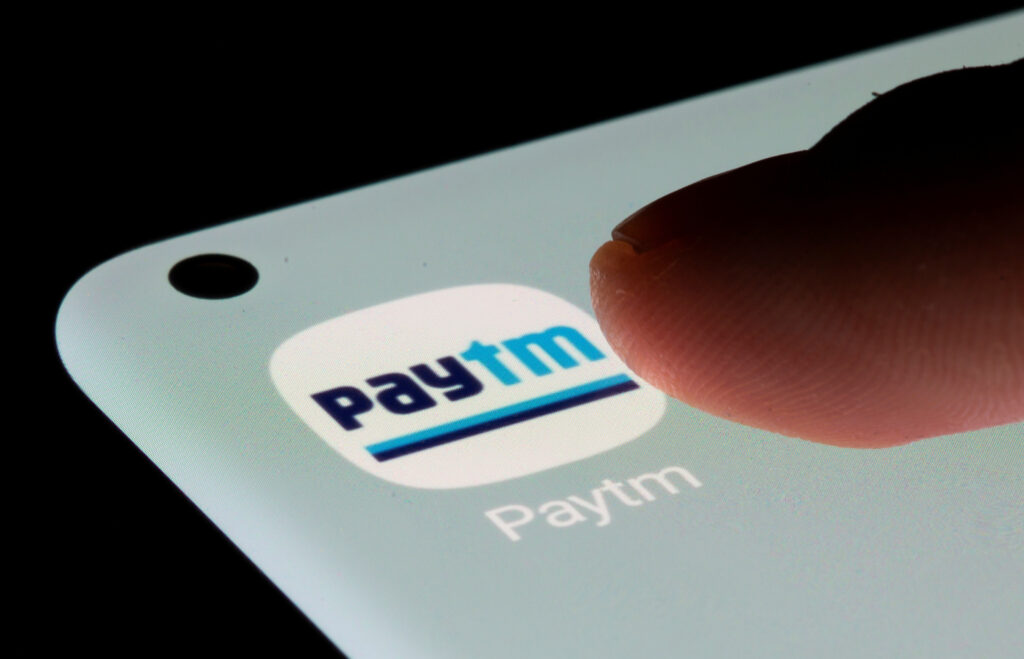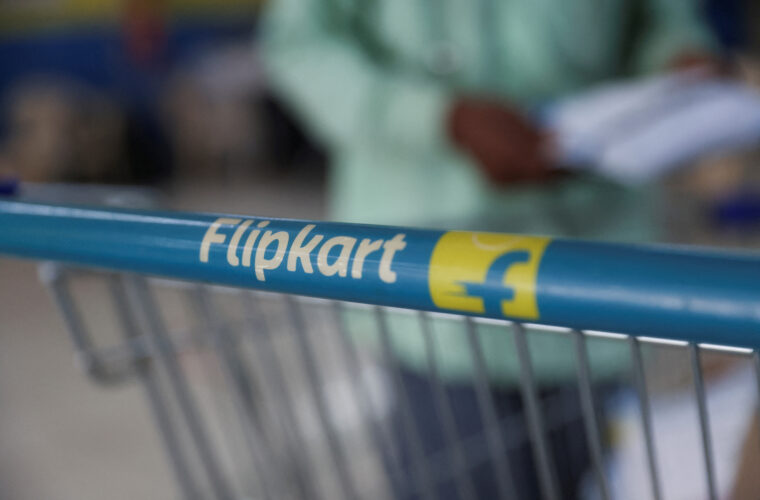By Rama Venkat
BENGALURU (Reuters) – India’s Paytm plunged as much as 20% on Thursday, its steepest decline since listing two years ago, as the digital payments firm will give out fewer low-value personal loans after the central bank tightened rules on consumer lending.
The non-bank lender said on Wednesday it will go slow on sub-50,000-rupee (about $600) loans but expand its portfolio of high-ticket personal and commercial loans.
The Reserve Bank of India tightened consumer lending rules in October, after a surge in small-ticket loans, particularly of those less than 50,000 rupees, and an increase in delinquencies.
Goldman Sachs on Thursday downgraded One 97 Communications, which owns and operates Paytm, to ‘neutral’ from ‘buy’ and lowered the price target to 840 rupees from 1,250 rupees.
Paytm’s plan to give out more higher ticket loans is not expected to fully offset a scale back of smaller-ticket loans, analysts at the brokerage said in a note.
The company’s lending growth, a core driver of its profitability, is expected to decelerate, while payments, commerce and cloud momentum would remain strong, the Goldman Sachs analysts said.
Paytm’s net income is now expected to turn positive in fiscal year 2025-26, a year later than previously expected, owing to slow revenue growth, Goldman Sachs said.

While some moderation in Paytm’s loan disbursals following the central bank’s measures was expected, “the quantum is ahead of our estimates,” Jefferies said, while trimming the company’s financial year 2024-2026 revenue estimate by 3%-10% and cutting its price target to 1,050 rupees from 1,300 rupees.
Paytm’s so-called post-paid loans made up over half of the total loans issues in July-September.
The shares, last trading 16.5% lower at 679 rupees, have risen nearly 28% so far this year, outperforming the Nifty financial services index, which has risen 10.5%.



